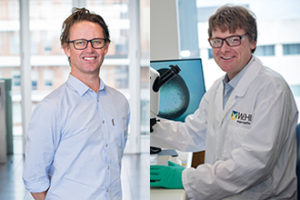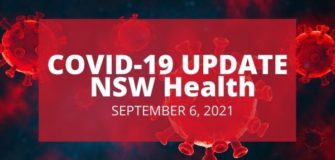Strengthening drug discovery in Australia with new learning hub
Share
The Australian Lead Identification Consortium (ALIDC) has announced the completion of the purpose-built Australian Drug Discovery Library (ADDL), which sees the relocation of more than 329,000 compounds to its new home at Compounds Australia.
Based at Griffith University in Queensland, the carefully curated library is an invaluable resource for Australian drug discovery researchers in the quest for new medicines to improve human health.
This follows a five-year extension of the Consortium, a national partnership that brings together leading drug discovery organisations from across Australia, including WEHI, the Children’s Cancer Institute Australia, UniQuest Pty Limited, the Queensland Emory Drug Discovery Initiative (QEDDI), Cancer Therapeutics and Griffith University.
At a glance
- The ADDL has been curated by experts in drug discovery and medicinal chemistry to provide a competitive advantage to Australian researchers.
- The library is an invaluable resource of more than 329,000 compounds for Australian drug discovery scientists in the quest for new medicines to improve human health.
- Researchers at WEHI have already used the ADDL to identify drug-like compounds that might work against COVID-19.
Competitive advantage for Australian researchers

WEHI researchers Associate Professor Peter Czabotar and Professor David Komander are utilising the ADDL in the search for new COVID-19 therapies. Photo courtesy of WEHI
According to Professor Michelle Haber AM, Executive Director at Children’s Cancer Institute Australia, the Lead Institute for the Consortium, the library will be a valuable starting point for new drugs to be discovered and developed in Australia.
“The Australian Drug Discovery Library has been curated by the Consortium’s experts in drug discovery and medicinal chemistry to specifically provide a competitive advantage to Australian researchers,” Professor Haber said.
The library was purchased with assistance from the Australian Government through its MTPConnect program, while a $300,000 grant to Compounds Australia by Therapeutic Innovation Australia (TIA) will contribute to library maintenance and promote expanded access to the library by scientists throughout Australia.
“TIA is delighted to support access to the Australian Drug Discovery Library by more Australian researchers,” said Dr Stuart Newman, CEO of Therapeutic Innovation Australia.
“This carefully selected and well-curated set of compounds gives Australian researchers the means to kickstart development of a therapeutic product based on their discoveries,” he said.
Supporting the quest for new drugs
The ADDL has already provided significant support to Australian research, including the identification of drug-like compounds that might work against COVID-19, lead-like chemical matter to support preclinical packages for commercial licensing, and the discovery of starting points for new drugs aimed at treating childhood cancer through the THerapeutic INnovations for Kids (THINK) initiative, pioneered by Children’s Cancer Institute Australia.
Using the ADDL, researchers at WEHI have identified drug-like compounds that could block two key coronavirus proteins, called Mpro and PLpro. These proteins, found in all coronaviruses, are essential for the virus to enter and multiply within human cells.
“Using the ADDL, we discovered new compounds that inactivated PLpro in the test tube, and we are currently testing whether they stop the growth of the SARS-CoV-2 virus in cells,” said WEHI Professor David Komander.
Fellow WEHI colleague Associate Professor Peter Czabotar said the ADDL was a brilliant resource that brought researchers closer to new potential COVID-19 therapies.
“Mpro is an essential enzyme of the SARS-CoV-2 virus, so any compounds inhibiting its activity are potential leads for new therapies. By screening the ADDL library against our Mpro assays we hope to identify new hits that can be progressed towards the clinic,” he said.
“Importantly, drugs that are able to inactivate PLpro or Mpro may be useful not only for COVID-19 but may also work against other coronavirus diseases, as they emerge in the future.”
At Cancer Therapeutics CRC, researchers were able to screen the ADDL to identify lead-like chemical matter for the development of ENPP1 inhibitors. This work contributed to a package that was subsequently licensed to Aculeus Therapeutics.
“Inhibiting ENPP1 is proposed to prompt and enable the body’s immune system to fight a range of cancers. The ADDL is a high-quality and diverse library that can provide tractable start points for medicinal chemistry optimisation for drug discovery projects,” said Dr. Brendon Monahan, CSO of Cancer Therapeutics.
Based on a city where the mountain meets the sea and where antique houses line the streets, my mind is free to wonder, to wander and to write.




